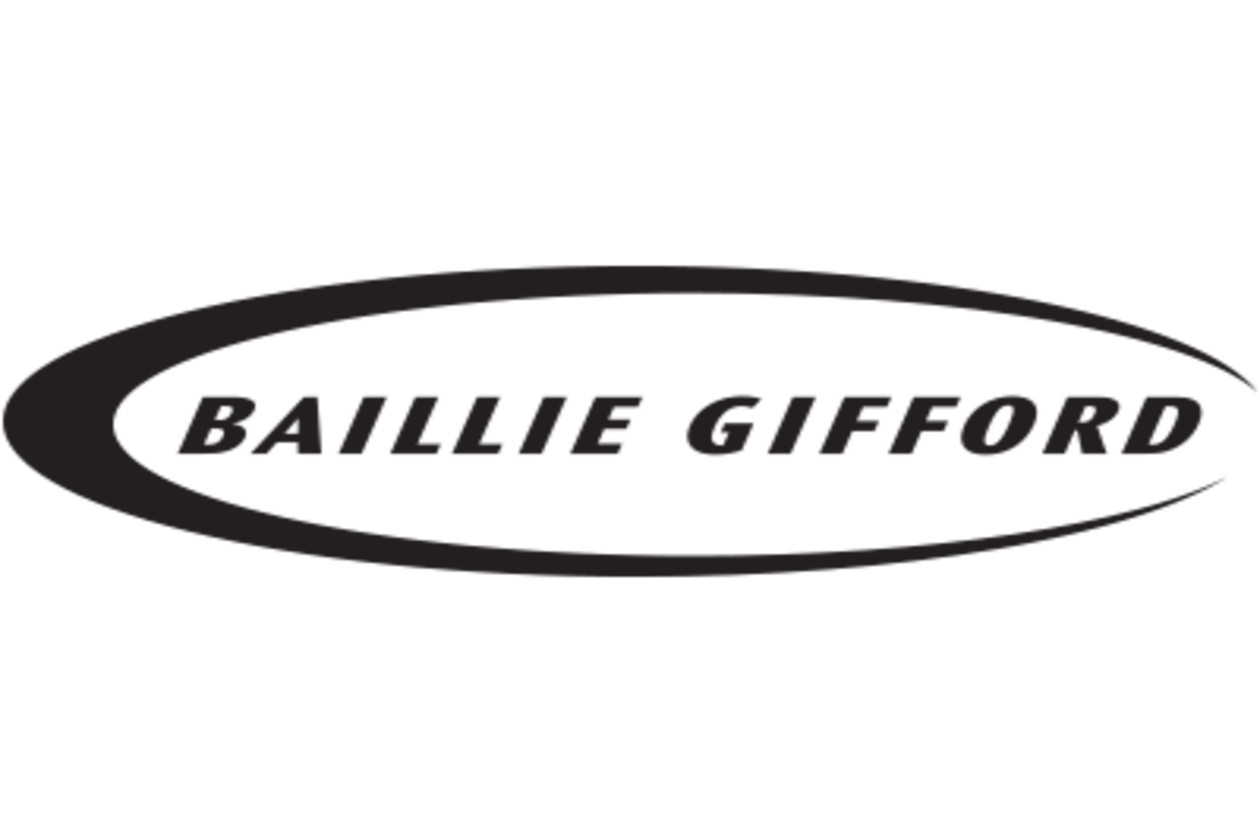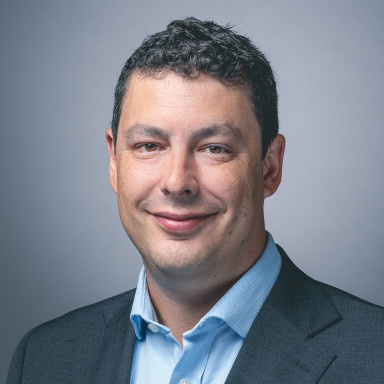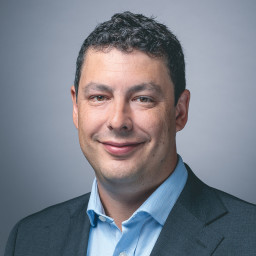The managers have more than four decades of combined experience in the industry and are supported by the vast resource and expertise of Baillie Gifford
We like their long-term, disciplined investment process, which has helped the managers deliver good long-term performance, albeit with higher volatility than peers
We think this is a good option for diversified exposure to stock and bond markets across the globe
This fund features on our Wealth Shortlist of funds chosen by our experts for their long-term performance potential
How it fits in a portfolio
Baillie Gifford Managed invests across six major investment areas: shares in the UK, North America, Europe, Asia, the emerging markets, and bonds. It provides investors with a lot of diversification in one fund, but the investments in emerging markets add risk.
Shares tend to make up more of the fund than other investments in the same sector and investors can expect that to continue over the long-term. The average amount invested in shares will be around 75%. The fund also has a bias towards investing in companies that have potential for significant growth into the future.
The combination of the amount invested in shares and the type of companies the managers like to invest in means we consider the fund to be a more adventurous option than many of its peers. We therefore expect more ups and downs in the value of this fund over the short-term, and investors should be aware of the potential for the fund to be highly volatile.
The fund could boost the growth potential of a more defensive investment portfolio with a focus on bonds or provide exposure to companies with the potential for long-term growth across the globe.
Manager
Iain McCombie and Steven Hay have been the fund's lead managers since November 2012. McCombie specialises in UK equities and joined Baillie Gifford in 1994. Hay joined in 2004 and is a fixed income specialist.
McCombie and Hay have the support of six other experienced investors who are all experts in their fields. They are representatives of the fixed income, US, Europe, emerging markets and developed Asia equity teams. The managers can also draw upon the vast resources at Baillie Gifford to help with additional research, challenge and analysis.
Process
The managers like to keep things simple. They tend to invest around 75% of the fund in shares because they think shares will be the main driver of returns over the long run. The managers set a lower limit of 65% to be invested in shares and an upper limit of 85%, in-line with the sector maximum. The rest is invested in bonds and cash with the aim to dampen volatility and add diversification. The bond part of the fund is made up of government and company bonds.
The shares section of the portfolio is managed in line with Baillie Gifford's growth-focused investment philosophy. The managers look for high-quality companies with clear and sustainable advantages over the competition. They consider a variety of factors, such as how fast the industry is growing, how the company's pricing structure works, how easily their products or services could be copied and how loyal customers tend to be. They also consider the firm’s financial stability, the quality of the management team, and whether senior managers' interests are aligned with long-term shareholders.
The managers invest globally in shares and bonds, which adds diversification. The proportion invested in different regions varies over time and depends on where the managers feel the best opportunities are.
At a high level, the team haven’t significantly changed the amount invested in shares and bonds over the last 12 months, with shares still making up 79.1% and bonds 19.2% at the end of January 2024. The rest of the fund is held as cash. The managers tend to invest in companies for longer term, which means changes aren’t made too often. That said, the managers will make changes depending on the opportunities available.
Recent additions to the fund are PDD, a Chinese online retailer, and LVMH, the French luxury goods conglomerate. On the other hand, the team have sold positions in Alibaba and Li Ning, both due to a lack of growth in demand from their customers.
The bond section of the fund invests in government bonds as well as investment grade and higher-risk, high-yield corporate bonds. While bond yields are higher now than they have been for some time, the team continue to believe that on a long-term view, company shares offer better value. Please note that the managers can also invest in derivatives, which increases risk if used.
Typically around 5%-10% of the fund is held in cash. This acts as a cushion when other assets decline in value and can also provide a source of funding for the managers when buying opportunities arise. The team have put this cash to work in recent years, meaning the amount invested in cash is notably lower than in the past.
This fund has a holding in Hargreaves Lansdown PLC.
Culture
Baillie Gifford is an independent private partnership founded in 1908. It's owned by partners who work full time at the firm. This ownership structure means senior managers have a vested interest in the company, and its funds, performing well.
We think this has helped cultivate a culture with a long-term focus, where investors' interests are at the centre of decision making. We also like that fund managers are incentivised in a way that aligns their interests with those of long-term investors and should retain talented managers.
ESG Integration
The managers think sustainability goes hand in hand with being a long-term investor in businesses. Their focus on long-term growth opportunities typically involves investing in disruptive and technology-driven businesses. These companies are often capital-light with a low carbon footprint.
The fund has also formally adopted the wider Baillie Gifford process of applying a norms-based evaluation of companies who are violators of the principles of the United Nations Global Compact over the last 12 months. It has also committed to the Net Zero Asset Managers initiative, to support the goal of net zero greenhouse gas emissions by 2050. We view these changes as positive but note that they are relatively standard across the wider industry.
Baillie Gifford's funds are run with a long-term investment horizon in mind – they see themselves as long-term owners of a business, not short-term renters. So, assessing whether society will support, or at the very least, tolerate, the business model over the long term, and whether management will act as good stewards of shareholders' capital is an important part of the investment process.
Dedicated Environmental Social Governance (ESG) analysts sit with and report into their respective investment teams, and the firm's ESG efforts are supported by a dedicated climate specialist team, an ESG Services team (responsible for voting operations and ESG data) and an ESG Client team (responsible for ESG-related client communications). Individual investment teams are responsible for voting and engagement for the companies they invest in. Investment in controversial weapons is prohibited across the firm.
The firm reports all its voting decisions and provides rationale in situations where it voted against management or abstained, in a detailed quarterly voting report. There is also a quarterly engagement report which details the companies engaged with, and the topic discussed, and further engagement case studies are available on the Baillie Gifford website. All this information is brought together in the firm's annual Stewardship Activities report.
Cost
This fund has an ongoing annual charge of 0.43%, but we've secured HL clients an ongoing saving of 0.18%. This means you pay a net ongoing charge of 0.25%. We think this is an attractive price to access a team we hold in high regard.
The fund discount is achieved through a loyalty bonus, which could be subject to tax if held outside of an ISA or SIPP. The HL platform fee of up to 0.45% per year also applies.
Performance
The fund has performed better than the average of funds in the same sector over the long term. Since McCombie and Hay took over in 2012, the fund has returned 143.20%* versus the IA Mixed Investment 40-85% sector average return of 95.48%. Though past performance is not a guide to the future.
The managers tend to invest more in shares than many other mixed-asset funds, so we expect the fund to perform well compared to peers when stock markets rise, but lag behind when markets fall.
The fund’s performance profile over the last 12 months has been much more in line with expectations when compared to the period from the start of 2020 to the end of 2022. The period during and immediately after COVID-19 resulted in extreme performance, with some significant growth followed by material losses. While the fund has continued to experience more ups and downs than the IA Mixed Investment 40-85% sector, these have been less extreme more recently.
That said, the fund under-performed the sector average over the 12 months to the end of January 2024. Within the investments in shares, losses on investments in Emerging Markets, Asian and European shares hurt the fund the most. These losses were off-set a bit by investments in North America which added most value to the fund. Investments in bonds were broadly flat over the period while cash generated a small positive return.
In terms of stock specifics, NVIDIA was the largest contributor to performance over the year. The significant interest in the growth of AI has caused a very large rally in their share price over the last 12 months. Another strong performer was Shopify, largely due to improvements in profitability within the business.
However healthcare companies Moderna and Novocure both lost value for the fund. Reduced demand for covid vaccines hurt the share price of Moderna and setbacks in clinical trials was a headwind for Novocure.
While it’s disappointing that the fund underperformed its peer group average over the last 12 months, the level of underperformance is within expectations.
Overall investors should be aware that this fund has the potential to have lots of ups and downs over the short term and that a long-term time horizon is important when investing in the fund.
Annual Percentage Growth:
31/01/2019 To 31/01/2020 | 31/01/2020 To 31/01/2021 | 31/01/2021 To 31/01/2022 | 31/01/2022 To 31/01/2023 | 31/01/2023 To 31/01/2024 | |
|---|---|---|---|---|---|
Baillie Gifford Managed | 17.76% | 33.42% | -8.99% | -8.44% | 2.55% |
IA Mixed Investment 40-85% | 11.91% | 5.19% | 6.36% | -2.47% | 4.46% |


